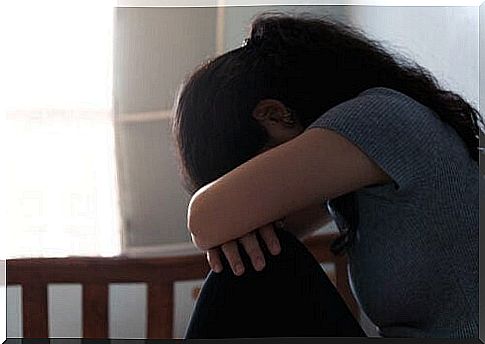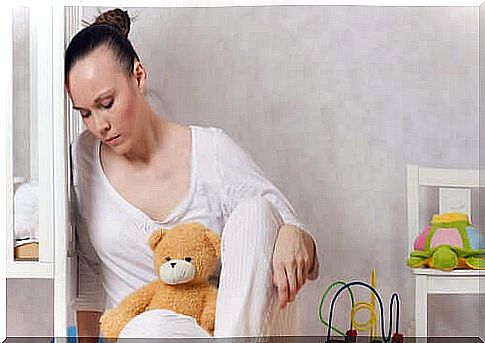Postpartum Depression: I Have A Child And I Can’t Be Sad

“I have a child and I can’t be sad”. This phrase, which is not one of the most associated with pregnancy, is repeated in the minds of a large number of women who suffer from postpartum depression, even if it is not verbalized or expressed.
The connotations implied by pregnancy do not always fulfill the mothers’ expectations. In our society, the image of idealized and biased pregnancy is predominant due to the enormous joy that the arrival of a new family member brings.
Both pregnancy and the period after childbirth are moments of great vulnerability for women. In them, not only feelings of joy and happiness appear, but also feelings of anxiety and depressive syndromes.
According to some studies, between 10% and 25% of women experience depressive symptoms after giving birth.

How to end taboos related to postpartum depression?
Depression is a pathological change in mood, with decreased mood and sadness, accompanied by vegetative, emotional, thought, behavior and vital rhythm symptoms that persist for at least two weeks.
Pregnancy is a stage of high incidence of depressive disorders and the puerperium is the period of greatest risk of depression in a woman’s life. According to Jadresic, the most common disorders during this period are postpartum dysphoria, postpartum depression (PPD) and postpartum psychosis (Jadresic, 2005).
Postpartum depression is not just one cause; it is the result of a combination of physical and emotional factors. Postpartum depression does not occur because of something the mother did or did not do. After giving birth, a woman’s hormone levels (estrogen and progesterone) drop sharply.
Decreased levels of estrogen and progesterone cause chemical changes in the brain that can trigger mood swings. In addition, many women are unable to rest as they should in order to fully recover from childbirth. Sleep deprivation can cause physical discomfort or exhaustion, factors that can contribute to symptoms of postpartum depression.

How can family and those close to you help?
It is likely that family and friends are the first to notice the symptoms of postpartum depression in a woman who has just given birth. Postpartum depression does not only affect the person who suffers from it, but also the family nucleus and the couple’s relationship.
Those closest to you must understand the state of mind of these mothers, even if they are happy about the birth of the baby. The family must provide women suffering from postpartum depression with a context where they can speak without fear of being misunderstood.
Expressing the emotions of the situation they’re going through, even if they seem inappropriate, will help them not feel guilty. Understanding what is happening is decisive for the situation to improve, and this does not only depend on the person suffering from the disorder, but on the whole family.
If, despite family support, symptoms persist, it is advisable and necessary to seek professional help. The first step for these mothers to understand what is happening is related to accepting the emotions they are experiencing, even if they are unpleasant.
When they are forced to be well all the time, and both the body and the state of mind say otherwise, the situation worsens, triggering a feeling of frustration.








